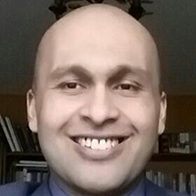Growing up, the idea of Muslims leaving Islam was something difficult to contemplate, almost unfathomable. Muslims were born into their faith and remained therein for the rest of their lives.
 Even those who converted remained or at worst, quietly left. This was a source of pride (outsiders may insinuate ego) among Muslims.
Even those who converted remained or at worst, quietly left. This was a source of pride (outsiders may insinuate ego) among Muslims.
The great Ahmed Deedat pointed to the increase in Muslims worldwide as proof of Islam’s truth. I now realise it was proof of lack of family planning. Quantity of people over quality of life.
Amid all that, the "traitors" of the Muslim tribe emerged. There was Salman Rushdie with his highly blasphemous "Satanic Verses".
There was Taslima Nasreen with her view on how the Quran should be changed. Muslims did not react well to these two, as I remember.
These two were only the beginning, apparently.
I recently attended an event organised by the Council of Ex-Muslims Britain. A conservative traditionalist Muslim might ask me, why on earth would I attend such an event? Had I lost faith at last?
Since I am a Quranist, some traditionalists would claim no surprise as they see Quranism as the last stop before complete atheism. Well if it is, then I have been at this "last stop" for nearly 20 years!
No, I was there for a number of reasons. Firstly, I am interested in ex-Muslims as a social phenomenon. Why are they emerging into public life now? What are their narratives like? Where do they go after leaving Islam? These are fascinating questions for me.
Secondly, I consider this a test of my faith. Ex-Muslims would ask some difficult questions to challenge my faith. These are the fires which purify the steel of one’s faith. If you cannot listen to dissenting views, then is your faith really that pure to begin with?
The panel members were chosen well. They represented a diverse set of narratives and when combined, emanated a very balanced view of the ex-Muslim experience. The first was very well-spoken lady who had been through the rigmarole of traditional Islamic education and had even spent a year in Pakistan studying Quranic exegesis.
However, she had questions brought about through learning various other modes of philosophical analyses. She felt that Islam could not answer these questions and that the notion of a God was untenable in the fact of the vastness of the universe.
The second speaker was also a woman who recounted her traumatic conflict with her parents who prevented her from having a normal social life. It was a very moving story about how she even came close to ending her life.
After a long battle with her parents during which she left home, returned and left again, in the end the final straw was her consumption of non-halal chicken! Such trivialities can cause a severance of family ties.
The third speaker was from a more liberal background. She had no overt cultural compulsion to practise Islam although Islam remained her religious identity. However, at a certain point in her life, she had some complex theological questions which were simply unanswerable.
I especially liked her open attitude about her own Muslim friends. She was like "to you your religion, I have my own beliefs". That should sound very familiar to Quran readers.
All in all, I had a very enlightening evening. Do I agree with their critiques of Islam? Partly yes. I do feel that Muslims' attitude with regards to Islamic education is very unhealthy. Islamic education is seen a mechanism of identity transference: "I am a Muslim, my children must be Muslim".
Little thought actually goes into it. It is a didactic experience and the facilitators are generally rote learners themselves (Ghulam Ahmed Parwez called them medieval librarians). Forget any kind of philosophical thought. That stuff’s haram (forbidden).
I also disagreed with the ex-Muslims on some vital issues. Well obviously. If I agreed with them fully, I would be an ex-Muslim myself.
I basically disagreed with their arguments concerning God’s existence. From the little that was mentioned, it was due to a material conception of the universe. I do feel that there is much to be said for inner explorations and the unity of mysticism and science (Fritjof Capra’s Tao of Physics is a good place to start).
Secondly and more importantly, I feel that their statements regarding the Quran were far from accurate although I would not fault them for it. They were only repeating the traditionalists’ understanding which is so prevalent that it is difficult to see anything else.
Having said the above, it would be extremely patronising to claim that these ex-Muslims left Islam because they "misunderstood" or because of the treatment they experienced.
We must respect the fact that they decided that Islam (whatever its form) was simply not for them. And that’s fine. They have lives to live and should do so in the manner in which they find most comfort.
As the first speaker said, when she was pretending to be Muslim, she felt like an alien in her own skin. No one should have to live like that.
To me, as long as they continue their earthly journeys positively and find fulfilment and happiness, then as a Muslim, I bid them peace. – October 14, 2015.
* This is the personal opinion of the writer or publication and does not necessarily represent the views of The Malaysian Insider.


Comments
Please refrain from nicknames or comments of a racist, sexist, personal, vulgar or derogatory nature, or you may risk being blocked from commenting in our website. We encourage commenters to use their real names as their username. As comments are moderated, they may not appear immediately or even on the same day you posted them. We also reserve the right to delete off-topic comments